An area I chose to write reviews on was “acts of genocide”. This was a term that the US government official chose to use when questioned about the Rwanda genocide by the media. It’s quite a dark subject to comment on, but I have read a number of books dealing with genocide. One of the disturbing things of a genocide is that most successful ones, if that is what you can call them, make sure that they try to cover up all that remains and make sure there are no survivors. For the most part, the Turks with the Armenians, Mugabe with the Ndebele tribe, Saddam Hussein with the Iraqi Kurds have all tried to do that. The word “genocide” has been in the news lately with what is happening to the Uighurs in western China these days, so I thought my five books would be on interest to your readers.
1
I remember watching the raw video footage that first aired on TV from Rwanda which showed a bleak picture into the 100-day genocide live on TV in 1994. It was gut-wrenching and eerie. I also remember my outrage watching the US State Department spokesperson Christine Shelley’s reluctance to call it a genocide but rather “acts of genocide”. An exasperated journalist questioned her in a press conference with ‘How many “acts of genocide” does it take to make a genocide?’. Her casual response was at the height of the killing, raping and pillaging of 900,000 Tutsi’s and sympathetic Hutus by the death squads, Interahamwe and the Rwandan Army. I started reading Dallaire’s nightmarish book as it followed the chronology of the Rwanda Genocide and the helplessness that General Dallaire and his UN troops experienced. I say helpless because the UN and Koffee Annan. This is an eye-witness account of what really happened.
2
Kanan Makiya's book touched something in me as I was so moved, especially about the senseless bombings and dismantling of Iraq during the Gulf War Invasion of 1991 in attempts to get Saddam Hussein, that I wrote passionate letters to both then US President Clinton and to Canada's PM Jean Chretien. Parts of the book refers to the war crimes Chemical Ali committed against the Kurds in particular in Halabja. The book also covers the al Anfal or “spoils of war” a name which Saddam called it in which many Kurds from Iraqi Kurdistan, and notably Marsh Arabs were herded in trucks and transported to a place in southern Iraqi desert called Salman Nugra. It was that they were slaughtered in mass graves and then bulldozers covered them up, some still alive. One of Makiya’s stories is about a Kurdish boy who survived Salman Nugra. At times, it is a gut-wrenching book, but worth the read.
3
I’ve always enjoyed reading Dalrymple’s travel accounts and this book was exhilarating. After reading "From the Holy Mountain" (1997), I felt like inciting a new Crusade against the Turks for their horrendous treatment of the Armenian Christians who lived in eastern Turkey after it became a secular state under Ataturk. Not only did the Turks commit genocide against those Armenians who remained in Eastern Anatolia, but actually did their level best to level Armenian cemeteries, turn churches into mosques and basically wipe away any idea that Armenians ever existed in Eastern Anatolia. As a result, those Armenians who escaped the genocide have since resided in Syria, Lebanon and are now part of the greater diaspora who also live all over the free world. Even today, as recorded in Dalrymple’s book, the Turkish authorities will even throw you in jail for trying to do archaeology on Armenian sites. Just recently, a century later, President Biden finally agreed to call it a “genocide”.
4
Peter was born in Rhodesia and even fought in the Rhodesian Bush War (1964-1979) up until Zimbabwean Independence in 1980. This book, "Mukiwa: A White Boy in Africa", is a memoir that mentions the reign of terror in Matabeleland from 1983-1987 by the Fifth Brigade who were Mugabe’s personal army trained by North Koreans and were directly under the control of two of Mugabe’s own fellow Shona tribesmen: Emmerson Mnangagwa (now PM) and Perence Shiri. This was when Mugabe decided to get rid of his main opposition, Joshua Nkomo, who was from the Ndebele tribe from the south eastern part of Zimbabwe called Matabeleland. The Fifth Brigade invaded Matabeleland burning Ndebele villages, torture, killings, rape, poisoning any wells in their wake. Mugabe called this form of “ethnic cleansing” or genocide as Gukurahundi which means “the rain that washes away the chaff”. According to different reports, as many as 20,000 Ndebeles were killed, maybe this is what they mean by “acts of genocide”.
5
Deborah Scroggin's excellent book, "Emma’s War", rekindled in me an awareness and mixed understanding of what was transpiring in a country that had largely been forgotten. How the largest country in Africa (at that time) could go unnoticed by “western media” is beyond me, but then Africa always seems to escape the attention of even the most knowledgeable and civilized countries in the world. It is even more pathetic that since numerous aid agencies and Human Rights Watch advocate groups had reported on recent incidents of "ethnic cleansing" in Darfur that little had been done. Moreover, the UN body, the US and other governments still refuse to call it either "ethnic cleansing" or "genocide". Her book has many eye-witness accounts of ethnic cleansing. Over time, Omar Bashir has lost power in Sudan and is now wanted for “war crimes” by the International Criminal Court—maybe justice will be done.
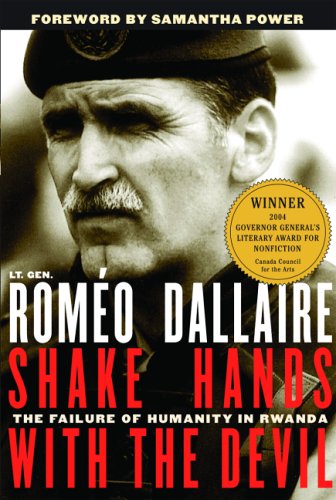
1
I remember watching the raw video footage that first aired on TV from Rwanda which showed a bleak picture into the 100-day genocide live on TV in 1994. It was gut-wrenching and eerie. I also remember my outrage watching the US State Department spokesperson Christine Shelley’s reluctance to call it a genocide but rather “acts of genocide”. An exasperated journalist questioned her in a press conference with ‘How many “acts of genocide” does it take to make a genocide?’. Her casual response was at the height of the killing, raping and pillaging of 900,000 Tutsi’s and sympathetic Hutus by the death squads, Interahamwe and the Rwandan Army. I started reading Dallaire’s nightmarish book as it followed the chronology of the Rwanda Genocide and the helplessness that General Dallaire and his UN troops experienced. I say helpless because the UN and Koffee Annan. This is an eye-witness account of what really happened.
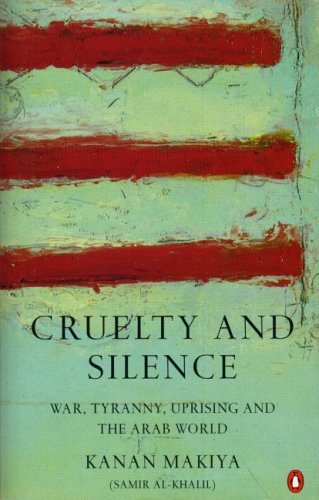
2
Kanan Makiya's book touched something in me as I was so moved, especially about the senseless bombings and dismantling of Iraq during the Gulf War Invasion of 1991 in attempts to get Saddam Hussein, that I wrote passionate letters to both then US President Clinton and to Canada's PM Jean Chretien. Parts of the book refers to the war crimes Chemical Ali committed against the Kurds in particular in Halabja. The book also covers the al Anfal or “spoils of war” a name which Saddam called it in which many Kurds from Iraqi Kurdistan, and notably Marsh Arabs were herded in trucks and transported to a place in southern Iraqi desert called Salman Nugra. It was that they were slaughtered in mass graves and then bulldozers covered them up, some still alive. One of Makiya’s stories is about a Kurdish boy who survived Salman Nugra. At times, it is a gut-wrenching book, but worth the read.
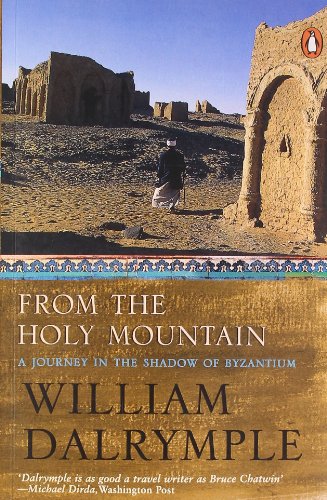
3
I’ve always enjoyed reading Dalrymple’s travel accounts and this book was exhilarating. After reading "From the Holy Mountain" (1997), I felt like inciting a new Crusade against the Turks for their horrendous treatment of the Armenian Christians who lived in eastern Turkey after it became a secular state under Ataturk. Not only did the Turks commit genocide against those Armenians who remained in Eastern Anatolia, but actually did their level best to level Armenian cemeteries, turn churches into mosques and basically wipe away any idea that Armenians ever existed in Eastern Anatolia. As a result, those Armenians who escaped the genocide have since resided in Syria, Lebanon and are now part of the greater diaspora who also live all over the free world. Even today, as recorded in Dalrymple’s book, the Turkish authorities will even throw you in jail for trying to do archaeology on Armenian sites. Just recently, a century later, President Biden finally agreed to call it a “genocide”.
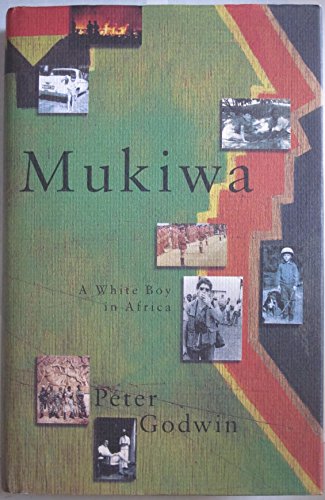
4
Peter was born in Rhodesia and even fought in the Rhodesian Bush War (1964-1979) up until Zimbabwean Independence in 1980. This book, "Mukiwa: A White Boy in Africa", is a memoir that mentions the reign of terror in Matabeleland from 1983-1987 by the Fifth Brigade who were Mugabe’s personal army trained by North Koreans and were directly under the control of two of Mugabe’s own fellow Shona tribesmen: Emmerson Mnangagwa (now PM) and Perence Shiri. This was when Mugabe decided to get rid of his main opposition, Joshua Nkomo, who was from the Ndebele tribe from the south eastern part of Zimbabwe called Matabeleland. The Fifth Brigade invaded Matabeleland burning Ndebele villages, torture, killings, rape, poisoning any wells in their wake. Mugabe called this form of “ethnic cleansing” or genocide as Gukurahundi which means “the rain that washes away the chaff”. According to different reports, as many as 20,000 Ndebeles were killed, maybe this is what they mean by “acts of genocide”.
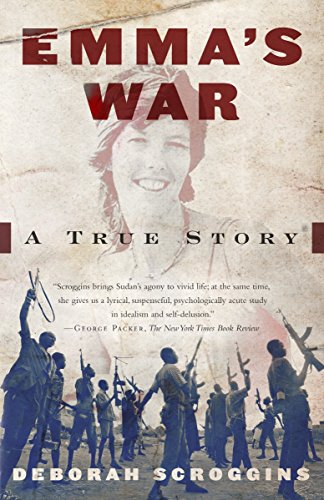
5
Deborah Scroggin's excellent book, "Emma’s War", rekindled in me an awareness and mixed understanding of what was transpiring in a country that had largely been forgotten. How the largest country in Africa (at that time) could go unnoticed by “western media” is beyond me, but then Africa always seems to escape the attention of even the most knowledgeable and civilized countries in the world. It is even more pathetic that since numerous aid agencies and Human Rights Watch advocate groups had reported on recent incidents of "ethnic cleansing" in Darfur that little had been done. Moreover, the UN body, the US and other governments still refuse to call it either "ethnic cleansing" or "genocide". Her book has many eye-witness accounts of ethnic cleansing. Over time, Omar Bashir has lost power in Sudan and is now wanted for “war crimes” by the International Criminal Court—maybe justice will be done.
© Five Books 2026